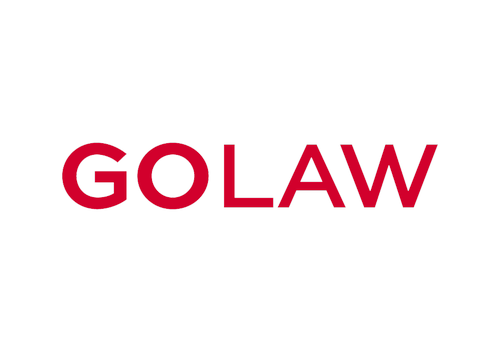Starting from January 1, 2023, a new regulation of joint stock companies’ activity («JSC») and significant changes in the regulation of limited liability companies and additional liability companies (hereinafter – «LLC and ALC») entered into force.
The new Law «On Joint Stock Companies» (hereinafter – the «Law»), which introduces certain changes to the activities of LLCs and ALCs, provides companies with much broader opportunities to manage and regulate their activities, vote, make decisions, and enhances the protection of JSC stockholders and LLC and ALC shareholders.
Who needs to update their charters now?
The Law establishes an obligation for JSCs to bring their activities, including charters and bylaws, into compliance with the Law till 31.12.2023. Such changes may relate to the company's management, decision-making, voting procedures, etc., and must be approved by the general meeting of stockholders. Since most JSCs in Ukraine hold general meetings of stockholders once a year, namely in April, it would be the best solution to make all necessary changes to the charters and bylaws till that date to avoid wasting time on convening extraordinary meetings under the pressure of legislative deadlines.
In addition, in case the JSC is going to make certain changes to the charter, the registrar will not approve them until the charter is fully compliant with the new Law. In this regard, it is advisable to check the entire charter on the matter of compliance with the new legislation and update it as soon as possible.
The Law does not set any deadlines for LLCs and ALCs to update their charters or amend their bylaws. However, the new opportunities for electronic voting, protection against raider attacks, and simplification of company management will be available only for the companies having brought their charters and bylaws in line with the new legislation. Without changes to internal documents, many of the newly created opportunities, the most useful of which we have listed below, will not work.
Furthermore, the Law establishes a new requirement for the charters of LLCs and ALCs, which shall now contain provisions on the accounting of shares of LLCs and ALCs in the accounting system maintained by the Central Securities Depository. The charters of newly established LLCs and ALCs should contain the respective provision.
A new era in the protection of LLCs and ALCs from raider attacks
Since in fact all local notaries and registrars have access to the Unified State Register of Legal Entities, Individual Entrepreneurs and Public Organizations (hereinafter –«USR»), data from which are open and publicly accessible, unscrupulous registrars have periodically abused their powers and committed certain illegal acts, resulting in the alienation of shares in LLCs and ALCs in an arbitrary and uncontrolled manner. This significantly increased the risks of a possible raider attack on the company. This problem did not actually exist for JSCs, as stockholders' ownership of their stocks is protected by registering such stocks in the depository system, but not in the USR.
After 01.01.2023, LLC and ALC shareholders also have the option of registering their shares in the depository system, rather than in the USR. If the company is already operating and the shares of the respective company are already registered in the USR, the Law allows the re-registration of such shares in the depository system. In this case, the shareholders will be able to choose a depository institution for accounting their shares: for example, the bank where the shareholder or the LLC is serviced. After re-registration, only chosen depositary institution (bank) will be able to conduct transactions with the shares, that significantly increases the security of the LLC’s assets and reduces the risk of a raider seizure of the company or its property.
LLCs and ALCs whose shares are accounted in the share accounting system may pay dividends through such an accounting system, as well as hold general meetings of participants using electronic communications through such a system.
The system of accounting for LLC and ALC shares provides for the possibility of opening escrow accounts for company shares. It will ensure that the share accounting system is guaranteed to reflect changes in the ownership of such a share by another person designated by the escrow account holder in the event of relevant grounds, such as full payment of the company's share or fulfillment of other obligations under the agreement. Such opportunity shall increase the guarantees of creditors whose claims are secured by a pledge of corporate rights in an LLC or ALC.
The possibility to register shares of LLCs and ALCs in a depository institution will only be available from 01.01.2024, as the National Securities and Stock Market Commission (the "NSSMC") is currently developing all the necessary regulatory documents that will regulate the respective procedure and procedural issues. However, the requirement for LLC and ALC to include in their charters a provision on accounting LLC and ALC shares in the accounting system maintained by the Central Securities Depository is already effective. In this regard, we kindly recommend all LLCs and ALCs include these and other provisions, including those on electronic voting, in their charters asap.
Holding the General Meeting of JSC online
The old legislation established rather strict requirements for holding general stockholders' meetings and drawing up minutes of such meetings. Even if the stockholders reached an agreement on all issues of the general meeting agenda, such a procedure usually took at least a month. The previous law did not allow JSCs to draw up minutes within one day immediately after the meeting, unlike LLCs. As a result, the implementation of important decisions was often delayed due to bureaucratic regulations. The new Law has simplified the process of holding general meetings in JSCs. Currently, the general meetings can be held online, and 30 days advance notice to stockholders is not required if the shareholders vote unanimously. The minutes can be drawn up immediately after conducting the general meeting, provided that all stockholders sign the respective document.
Corporate governance and the Board of Directors
The new Law allows companies (JSCs, LLCs and ALCs) to create a Western-style management model with a single operating body in the company - the board of directors, instead of two bodies - the executive body and the supervisory board, as it was before. This model allows companies to reduce the number of bodies, procedures, and protocols. At the same time, the board of directors itself actually combines the control functions assigned to the supervisory board and the management functions that fall within the competence of the executive body.
To take an advantage of such a possibility, the company's charter should contain the provision on the usage of a one-tier management model with a board of directors. The respective board consists of the executive (management) and non-executive directors (management control). Executive directors perform the management functions of the company, managing the day-to-day activities. Non-executive directors, who may be fully independent or «ordinary» directors, are responsible for supervisory, risk management, and control functions. Non-executive directors may not interfere in the day-to-day activities of the company otherwise than through the adoption of relevant decisions by the board of directors or its committee (if applicable).
In practice, combining the respective functions in one body simplifies the exchange of information and improves the dynamics of decision-making compared to a two-tier model where management and the supervisory board are separated and do not actually have joint meetings to discuss the most important issues.
To sum up, the management and operation of JSCs, LLCs, and ALCs have become much more flexible than before, granting their stockholders and shareholders the opportunity to use mechanisms which are already functioning for a long time in western countries such as the USA and Great Britain, but were not available in Ukraine until recently.


























